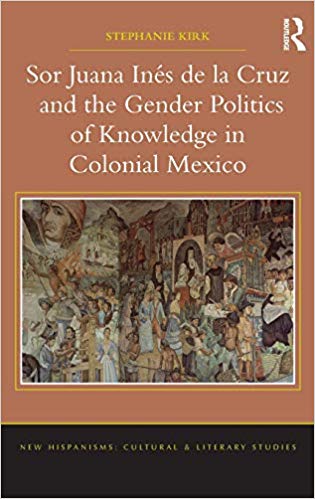Professor Kirk's main teaching and research interests include the literature and culture of colonial Latin America with a focus on gender studies and religion.
Stephanie Kirk is the author of two books: Sor Juana Inés de la Cruz and the Gender Politics of Knowledge in Colonial Mexico (Routledge, 2016) and Convent Life in Colonial Mexico: A Tale of Two Communities (Florida UP, 2007). She has also published numerous articles and essays on gender and religious culture in colonial Mexico, and on the life and work of Sor Juana Inés de la Cruz. She has edited two collected volumes: Religious Transformations in the Early Modern Americas (Penn Press, 2014) and Estudios coloniales en el siglo XXI: Nuevos itinerarios (IILI, 2011). She is currently preparing a translation and critical edition of Carlos de Sigüenza y Góngora’s convent chronicle Paraíso occidental. Stephanie Kirk is the editor of the Revista de Estudios Hispánicos.



